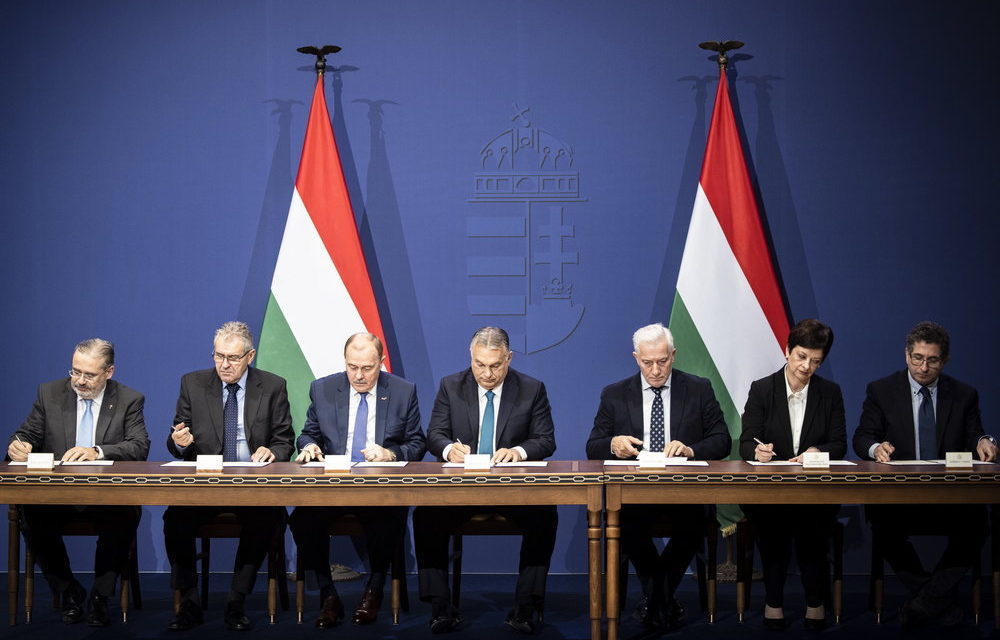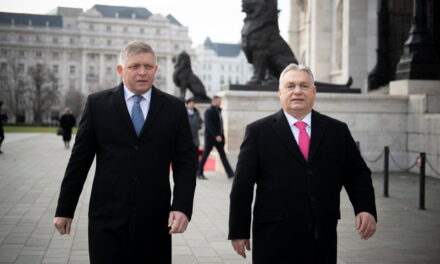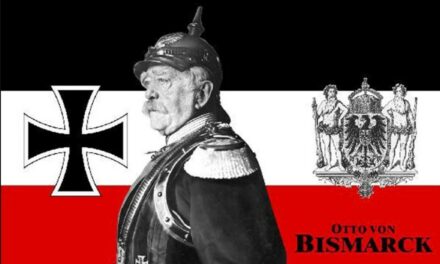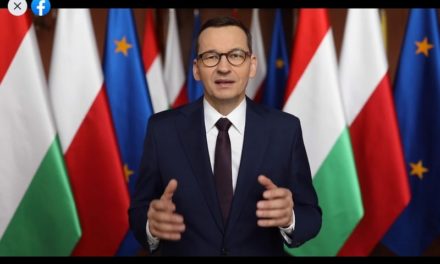Growth is a joint Hungarian success, so everyone should benefit from it, Prime Minister Viktor Orbán said.
During the ceremonial signing of the document at the event held in the Carmelite monastery, he explained: at the beginning of their administration, their most important commitment was to create a work-based economy. If there is work, everything is there, this was the starting point, he recalled.
He noted that taxes on work are constantly being reduced, since 2010, the level of taxes on work has decreased by a quarter in Hungary.
The prime minister highlighted: the minimum wage is at least a three-factor equation, there are employees who want higher salaries, employers who want to maintain their competitiveness and there is the government, which has the duty to keep the country's finances in order. In order for wages to increase, competitiveness to remain and finances to be in order, insight is needed, he said.
He emphasized: after 2010, they realized that it is not necessary to think ideologically, but to put the representation of the people at the center of governance, and then we have a common basis on which an agreement between trade unions and employers can be established.
The prime minister elaborated on this: there is robust economic growth, one of the largest in Europe, and serious work is behind it. This growth is the joint success of all Hungarians, so everyone will benefit from it, even pensioners, he declared.
He announced: the guaranteed minimum wage will be HUF 260,000, and the minimum wage will be HUF 200,000. Along with the minimum wage, the wages of public workers will also increase significantly, he added.
He said that work is a good thing, provided it is paid fairly. Between 2002 and 2010, the real value of the minimum wage decreased by 2 percent in Hungary, while in the other V4 countries the same indicator was plus 30 percent, he said.
He emphasized: after 2010, the most important task was to break with the practice of low minimum wages, to offer work instead of aid, so that everyone who can can work and that work is valued not only in a moral but also in a financial sense.
He said: the success of this approach is proven by the fact that in the last 12 years the minimum wage has increased by a total of 172 percent, which is the greatest success of the Hungarian trade union movement. The fact that everyone can work is the greatest success of employers and that finances and public finances are in order at the same time, the success of the government, he listed.
According to Viktor Orbán, the inherent nature of every wage agreement is not only the increase of minimum wages, but also the reduction of taxes and contributions burdened by employers. If taxes are reduced, the entrepreneurs can give this money to the workers, more will remain for the enterprises, therefore more can remain for the families, he pointed out.
He believed that this money would lead to new jobs and rising wages, which would ultimately further increase economic performance. The Archimedean point of the entire current work-based economy is the tax system that can improve competitiveness, with the tax cuts they created the opportunity to talk about how much they can raise wages every year, he explained.
The Prime Minister also spoke about the government offering an alliance to the unions and employers, "we offered an alliance of action to the world of work". The increase in the minimum wage and the guaranteed minimum wage also drives average wages up, so today's news is good news not only for those living on the minimum wage and the guaranteed minimum wage, but also for everyone who works, he pointed out.
Minister of Innovation and Technology László Palkovics emphasized that extraordinary results have been achieved in recent times, because Hungarians do not want to live on aid, but on work. Results were achieved even during the epidemic, it seems that the government's measures are working, the Hungarian economy is once again among the best performers, he pointed out. He added that employment has also weathered the crisis.
He noted: the Hungarian unemployment rate is among the lowest in the EU.
He said: wages have been rising continuously since 2010, and the epidemic situation did not cause a break in this either. There was a significant demand for raising the minimum wages, people also support raising the minimum wage, he explained.
He said: with this measure on the esteem of workers, Hungarian families can benefit even more from the growth of the economy. Appropriate compensation for employers is provided by the reduction of tax burdens, he said.
Imre Palkovics, the president of the National Association of Workers' Councils, emphasized that it was important to raise the minimum wage so that it would not be too far removed from the average wage. If there is a meaningful consultation, there is also a serious result, he declared.
He said: 300,000 people work for the minimum wage, the minimum wage for skilled workers affects 800,000 people.
He touched on it: an agreement model is being developed that is predictable for both employees and employers.
Ferenc Rolek, the vice-president of the National Association of Employers and Manufacturers, said that they are optimistic about this agreement, because it indicates that they expect economic growth to continue and that they can manage rising wages.
Source: MTI
Photo: Prime Minister Viktor Orbán (b4) and László Perlusz, Secretary General of the National Association of Entrepreneurs and Employers (b), Ferenc Rolek, Vice President of the National Association of Employers and Manufacturers (b2), Zoltán Zs. Sõke, the President of the ÁFEOSZ-COOP Association (b3), Imre Palkovics, President of the National Association of Workers' Councils (b5), Melinda Doszpolyné Mészáros, President of the Liga Trade Unions (b6) and Tamás Székely, Vice President of the Hungarian Trade Union Association (b7) sign the wage agreement in the Carmelite Monastery on November 15, 2021.
MTI/Prime Minister's Press Office/Zoltán Fischer













